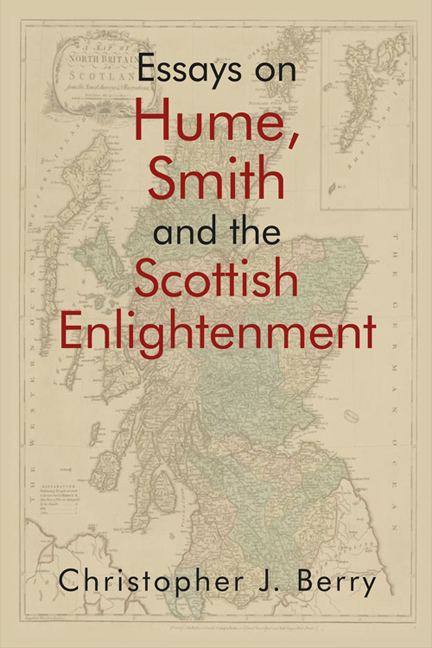3 - James Dunbar and the Enlightenment Debate on Language
Published online by Cambridge University Press: 06 May 2021
Summary
James Dunbar was regent at King's College, Aberdeen from 1765 to 1794 and published in 1780 a volume entitled Essays on the History of Mankind in Rude and Cultivated Ages. As the title indicates, this work took the form of a number of more or less discrete disquisitions on universal history. This was a favourite Enlightenment theme with Scottish writers. Dunbar's book may thus be compared with Ferguson's History of Civil Society (1767), Millar's Observations Concerning the Distinction of Ranks (1771) and Kames's Sketches on the History of Man (1774). Like these and many other works, Dunbar's Essays exhibit methodologically the two key features of what Dugald Stewart called theoretical or conjectural history, namely that when direct factual evidence is unavailable then it is necessary to conjecture how men are ‘likely to have proceeded from the principles of their nature and the circumstances of their external situation’ (Life II, 46/293). The immediate context of these remarks was Adam Smith's Considerations Concerning the First Formation of Languages (1761) and one of the special features of Dunbar's own conjectural history of mankind is the attention he pays to language. The object of this chapter is to present Dunbar's account not only for its own sake but also for the ways in which it exemplifies certain broader Enlightenment assumptions about human nature, history and society.
Dunbar's own version differs from that of his compatriots by adopting a different periodisation. He identifies three eras in the history of the species:
First, Man may have subsisted, in some sort, like other animals, in a separate and individual state, before the date of language, or the commencement of any regular intercourse. Secondly, He may be contemplated in a higher stage; a proficient in language, and a member of that artless community which consists with equality, with freedom and independence. Last of all, by slow and imperceptible transitions, he subsists and flourishes under the protection and discipline of civil government. (EHM 2–3)
Whereas most Scots, with the exception of Monboddo, are chiefly concerned with the changes within the third of Dunbar's eras (the so-called four-stages theory),2 Dunbar is concerned in his opening essay with the change from the first to the second era, and in his second essay with the fact that the possession of language is one of the specific differences between the two eras.
- Type
- Chapter
- Information
- Essays on Hume, Smith and the Scottish Enlightenment , pp. 48 - 59Publisher: Edinburgh University PressPrint publication year: 2018



